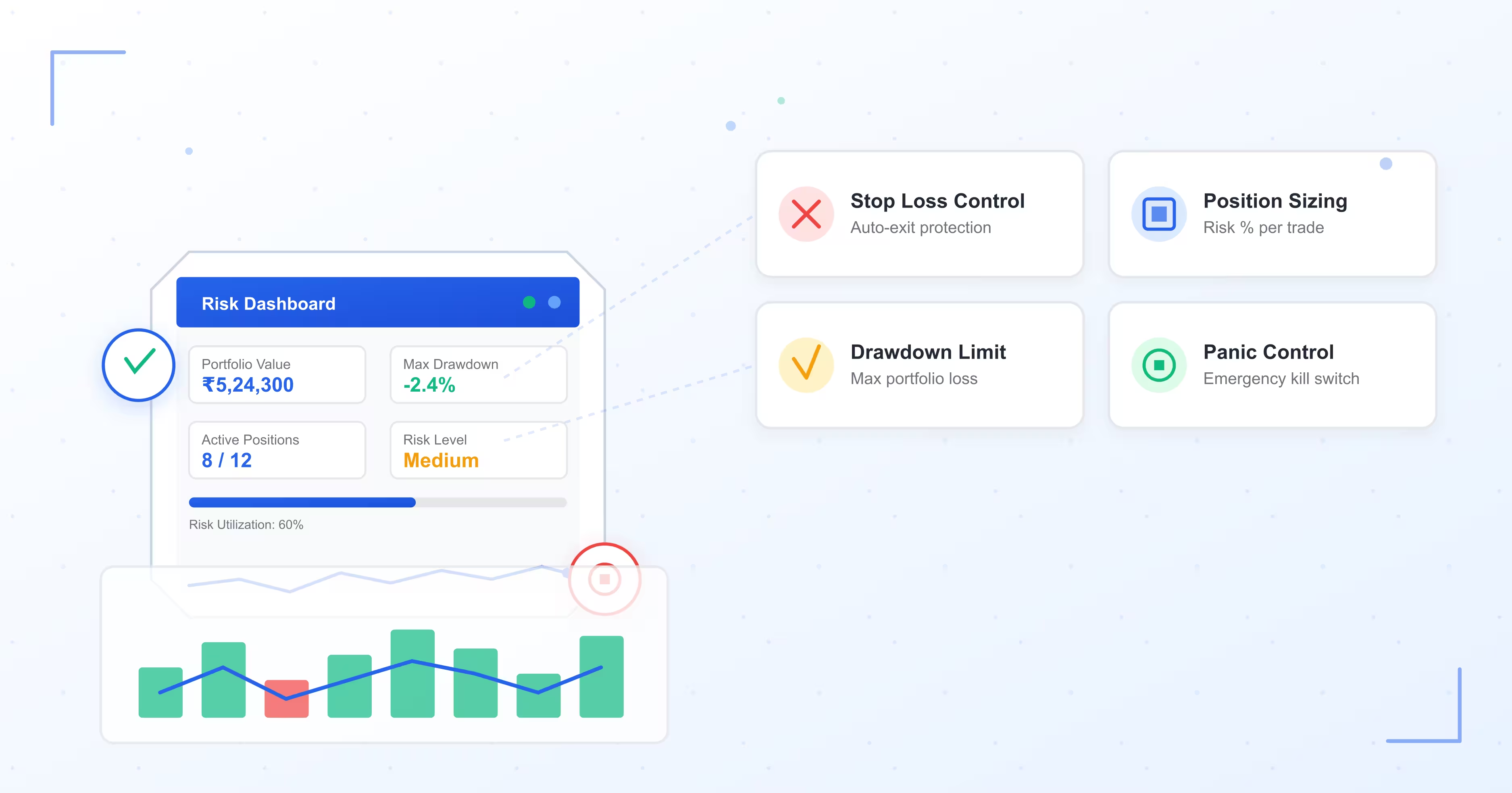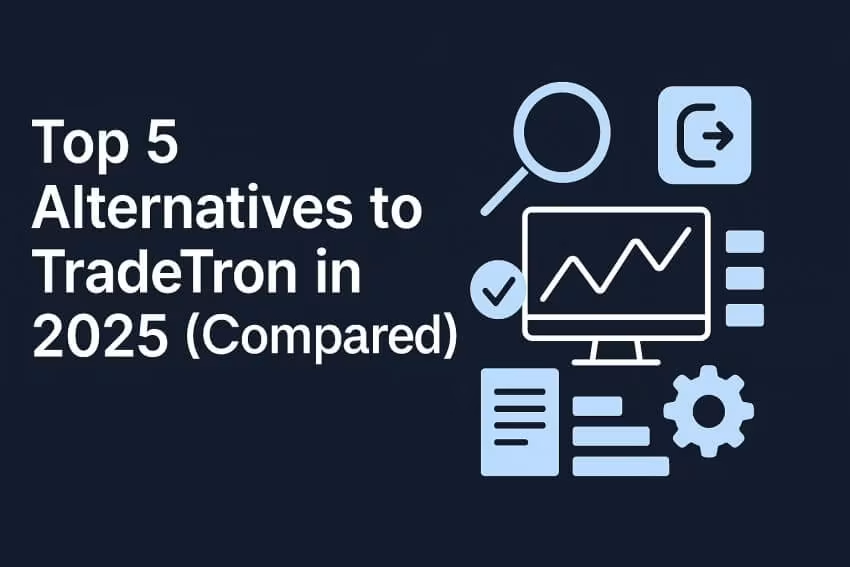In today's rapidly evolving financial landscape, choosing the right algo trading platform is pivotal for traders seeking automated solutions. This blog aims to elucidate essential factors to contemplate when selecting an algorithmic trading platform, empowering traders to make informed decisions for their automated trading endeavours.
Defining an Algorithmic Trading Platform
An algo trading platform, like uTrade Algos, refers to a specialised software or technology solution that facilitates automated trading activities based on pre-defined rules and algorithms. These platforms enable traders to develop, test, and execute trading strategies automatically without the need for manual intervention.
Key features of an algorithmic trading platform include:
- Strategy Development: Allows traders to create, backtest, and optimise trading strategies using programming languages or user-friendly interfaces.
- Automated Execution: Executes trades based on predefined criteria, such as price, volume, timing, or other market conditions.
- Risk Management Tools: Offers tools to manage risk through features like stop-loss orders, position sizing calculators, and risk assessment functionalities.
- Market Access: Provides access to various financial markets, asset classes, and instruments for diversified trading strategies.
- Backtesting Capabilities: Allows testing of strategies using historical data to evaluate performance and refine algorithms before deploying them in live markets.
- Real-time Data Feeds: Offers access to real-time market data, news, and analytics for informed decision-making.
- Customisation Options: Provides flexibility for traders to customise and adjust algorithms according to changing market conditions.
Factors to Consider When Choosing an Algorithmic Trading Platform
Reliability and Speed
- Uptime and Performance: Assess the platform's historical uptime to ensure consistent availability during trading hours. Look for low latency to facilitate swift execution of trades.
- Execution Speed: Evaluate the platform's execution speed, crucial for high-frequency trading strategies that depend on rapid order execution.
Advanced Features and Customisation
- Algorithm Customisation: Seek platforms offering customisable algorithms that allow traders to tailor strategies to specific market conditions or preferences. For example, uTrade Algos offers both customizable strategies and pre-made strategies known as uTrade Originals. While the former caters to advanced users seeking tailored approaches, the latter is ideal for newcomers entering the world of algorithmic trading. Each option carries its distinct advantages, making the platform suitable and effective for a wide range of traders.
- Backtesting Tools: Robust backtesting capabilities enable traders to assess strategy performance using historical data, aiding in strategy refinement.
Risk Management Tools
- Stop-loss Orders: Platforms should support automatic stop-loss orders to mitigate potential losses during adverse market movements.
- Position Sizing Calculators: Tools that help in determining optimal position sizes based on risk tolerance and trade parameters are advantageous.
Access to Markets and Instruments
- Diverse Market Access: Evaluate the platform's access to various markets (such as stocks, forex, commodities) and trading venues (exchanges, OTC markets).
- Availability of Instruments: Consider platforms offering a wide range of instruments (stocks, options, futures, etc.) for diversified trading strategies.
Costs and Fees
- Fee Structure: Understand the platform's fee structure, including commissions, spreads, data fees, and any additional costs associated with trading. For instance, uTrade Algos, an affordable platform, caters to a wide spectrum of traders and offers a seven-day free trial on its web and mobile applications without any commitment. During this trial period, users gain access to 2 backtests per day, uTrade Originals, and the ability to create up to 5 algorithms, providing a comprehensive glimpse into the platform's functionalities and benefits before making a commitment.
- Value for Features: Assess if the costs align with the platform's offered features and performance, ensuring a balance between costs and benefits.
User-Friendly Interface
- Intuitiveness: An intuitive interface simplifies navigation and use, allowing traders to access tools and execute trades efficiently.
- Ease of Use: Platforms with straightforward functionalities and clear visual representations aid in strategy development and execution.
Customer Support and Reputation
- Customer Service: Evaluate the platform's customer support responsiveness, availability, and expertise in resolving queries or technical issues. At uTrade Algos, dedicated support is readily available to address your queries, ensuring a seamless trading journey. Their commitment to assistance aims to enhance your trading experience, offering guidance and assistance whenever needed to navigate the platform efficiently.
- Platform Reputation: Consider user reviews, industry reputation, and testimonials to gauge the platform's reliability and user satisfaction.
Security and Compliance
- Security Measures: Verify the platform's security protocols, encryption standards, and measures to safeguard user data and funds.
- Regulatory Compliance: Ensure the platform complies with relevant regulatory bodies, assuring adherence to industry standards and guidelines.
Future of Algorithmic Trading Platforms
The future of algo trading platforms is poised for advancements leveraging technological innovations such as artificial intelligence (AI), machine learning (ML), big data analytics, and blockchain technology. Anticipated developments include:
- AI and ML Integration: Enhanced algorithms utilising AI and ML for more sophisticated trading strategies, pattern recognition, and adaptive learning to dynamic market conditions.
- Predictive Analytics: Advanced predictive models to analyse vast data sets to forecast market trends, optimise strategies, and make informed trading decisions.
- Quantum Computing: Potential integration of quantum computing for faster computations, enabling complex trading strategies and risk assessment in real-time.
- Increased Automation: Further automation in trading processes, reducing human intervention and facilitating rapid execution of trades based on evolving market data.
- Blockchain in Trade Settlement: Implementation of blockchain technology for secure, transparent, and efficient trade settlement and transaction processes.
- Regulatory Compliance Tools: Improved compliance mechanisms within platforms, ensuring adherence to evolving regulatory standards and compliance requirements.
- Enhanced User Experience: Continued focus on user-friendly interfaces and intuitive functionalities for seamless navigation and efficient utilisation of platform features.
In conclusion, it may be said that choosing the right algorithmic trading platform demands a comprehensive assessment of its reliability, features, risk management tools, market accessibility, costs, usability, customer support, security, and compliance. By carefully evaluating these factors, traders can select a platform that aligns with their trading objectives, empowering them to embark on successful automated trading journeys.












